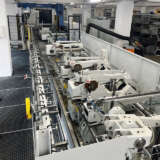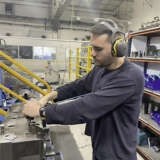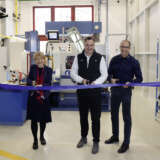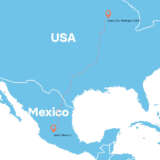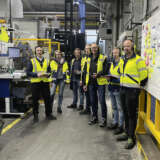“We don’t earn any money unless production is running”
Our company’s original location in Osterode (Germany) has just been through two very intensive years that demanded a great deal of the team on site. Machinery transfers, operating losses and many, many hours of overtime. Despite the difficult situation, our plant has also chalked up a number of successes, including a drastic reduction of the backlog and implementation of a new shop floor management.
Without a well-functioning production operation, a company cannot make any money. It is the heart of every company, and a smoothly running production is essential to commercial success. It should therefore be no surprise that many of our locations are careful to orient their processes to their production operations. The team in Osterode has been hard at work on this, and it has not only succeeded in slashing its backlog to nearly zero, but has also implemented additional measures aimed at building on this success.
This includes the introduction of a strict meeting routine. These meetings offer the chance to review the current situation and quickly address any problems, as well as to effectively communicate production targets.
Everyone is in the same boat
The schedule is tight: 8:00 a.m. cold forming, 8:20 a.m. heat treatment, and from there straight to surface treatment. 8:40 a.m. threading, 9:00 a.m. doing the rounds of the plant. By 9:20 a.m., everyone knows what happened the day before and what is expected for the day ahead. The “TOP 15” and “TOP 20” meetings at the Osterode plant proceed according to a strict plan. Deviations or downtimes? Not here. If someone is absent, a substitute takes their place. Every morning, approximately five to eight people come together at the plant with their headphones, with their colleagues in administration taking part either on site or online from their offices. To be discussed: key figures, the experiences of the previous day, the goals for today, and the specific measures that must be taken to achieve these. The important thing is that there is always someone responsible for each measure.

Plant Manager Sebastian Glasl explains: “Our colleagues in every area take part: maintenance and planning, supply chain and tool scheduling, group heads and plant managers.” This makes it possible to make many decisions directly on the shop floor. Glasl talks about how it functions in actual practice: “We recently had three machines go down, and there were not enough maintenance personnel to repair all three at the same time. To deal with this, we jointly reached a decision as to which machine should be given priority.” If there is a question as to when a particular tool is going to be delivered, our colleagues in scheduling look into the matter and then pass on this information to the group. At the same time, the system retains the capacity to deal with acute problems. Glasl: “Our colleagues on the machines can see that the same people are present at the same time every day and are dealing with the issues that matter to them – this creates trust.”
Not there yet
The management team meets once again at 3:00 p.m. – to address urgent issues – ensuring commitment. Glasl: “If I know that someone will be inquiring about something later on, I can’t simply put it off.” Osterode has been following this meeting routine for roughly one and a half years now, and even though many things are running much better than before, it is by no means perfect. There is still a great deal of learning left to be done. Glasl sums it up quite well: “We don’t earn any money unless production is running, and that is why we have to keep this up.”
KXpress





